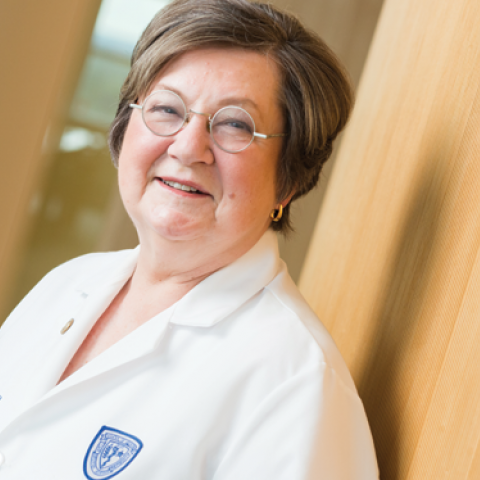Day after day, it takes more than a village to keep our School of Medicine running smoothly. And in these uncommon times, our staff is keeping it all together, whether working on campus or remotely from home.
We now have letters to explain why some of our wonderful essential staff are out of their houses and going into work on campus, in case they are stopped by police under the shelter-at-home order. We provide extra pay for those who must come in and full pay for those who work at home. And we are covering health insurance for some and giving lunch to those who must come into work.
But these measures are only a part of our admiration for our devoted staff. We are incredibly grateful for these strong-willed individuals who are keeping the university operating at basal levels (and in some cases, much higher) so that when the pandemic subsides, little will have been lost and we can pick up nearly where we left off.
The most obvious staff are our police and security forces, who are checking on buildings, other staff, and generally keeping the place running. But for the School of Medicine at least, there are many, many more.
Animal experiments are at the heart of much biomedical research. Though we and most other research-intensive schools have reduced the use of animals to the bare minimum on humanitarian grounds, there is no substitute for in vivo work at some point in many research programs. Often such work is with specially engineered mice, including those with human immune systems or human lungs. We have mouse models for many diseases that are critical in our understanding of particular disorders and the development of therapeutics. These animals, engineered over years and refined over decades, are critical to progress and must be cared for in special ways. The staff of the Animal Resource Center accomplishes that quietly, day after day. And they continue now, staying six feet apart! We are very grateful.
We are thankful to those who staff our labs, keeping essential work going and in many cases, pivoting to attack the coronavirus itself. Immunologists, virologists, experts in cell culture, drug developers – all of these staff, graduate students, and faculty are contributing mighty efforts in the lab – and staying six feet apart from each other. They are minimizing lab time, doing calculations, writing protocols and having lab meetings from home, but a certain amount must be done with cells and reagents in the lab. We are grateful to them – the coronavirus won’t be conquered without these scientists’ efforts. And, parenthetically, neither will cancer, or heart disease or genetic diseases – and our lab staff continues the work safely and with great determination.
Also vital are the support staff who clean the buildings, keep the heat on, deal with the floods, and otherwise maintain the enterprise.
And all of those who have learned to work from home – not easy when you are used to working in concert with others as a team, calling across the office (and going to lunch together!) – are the unsung heroes of the operation.
So, here’s to you – our staff who keep us going, have kept us going, and will keep us going. Here’s to your Purell bottles and your gloves and your personal social distancing. Here’s to figuring out how to do so much from home, and working rapidly and accurately when you must be here. We are most grateful – and we want you to know it!
Pam


